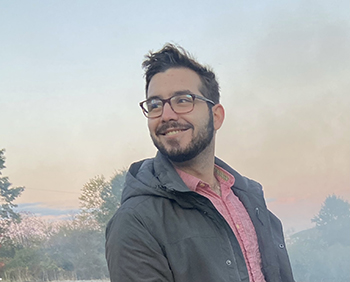Jason Epstein
 How would you describe the major you designed?
How would you describe the major you designed?
The program I designed for myself is Marine Sciences. It is a combination of the Earth Sciences program and the Environmental Resource Management program. The Earth Sciences program is more of a general overview of Earth systems and dynamics. The Environmental Resource Management program focuses more on analysis and gauging the health of different systems, primarily terrestrial ones. I took those two concepts and focused them on a marine setting. Environmental issues are important to me. Probably the most dangerous issue coming in the next fifty years is rising sea levels, especially in cities like New York where I am from. I’m learning Geographic Information Systems to help me analyze such issues.
What is your capstone project?
I am doing a research-based thesis about potential habitable zones for symbiotic corals. Symbiotic corals, like the ones in the Great Barrier Reef, are often limited by depth and light availability. I’m interested in identifying zones in the ocean that fit all conditions for corals to live and thrive in sans the depth requirements. My thesis puts forth the idea of using artificial platforms to negate depth as a limiting factor in these unconventional habitable zones. I would like to work out if it is possible to then use these zones for coral conservation.
What are your plans for after graduation?
I’d really like to go to graduate school but whether I go straight into that or work for a couple of years is to be determined. I definitely want to stay in academia or be adjacent to it. A dream career of mine would include living on a research vessel or joining research stations.
What advice do you have for new B.Phil. students?
Once you are in B.Phil., it’s a lot like being a kid in a candy store. You can take whatever you want. But it is important to remember you still need to graduate. Time is limited, so take appropriate courses for what you are interested in and what you are working towards. Because there is no framework for B.Phil., you need to have a clear course for where you are going. Being able to self-motivate is good. Do not be afraid to reach out and talk to people. Ask for help. Be very aware of the fact that you are doing something unique and cannot do it on your own.
As an undergraduate, you might not have much experience doing research or writing your own thesis. So, having somebody who knows a lot more than you is really useful. In my case, this has been Professor Iglesias, a coral researcher from the Biology Department. In addition to being his thesis advisee, I also work in his lab. Your mentor in B.Phil. is very important! Make sure they are someone you get along with and can meet frequently with. In my case, I probably meet with Professor Iglesias two to three times a week.

